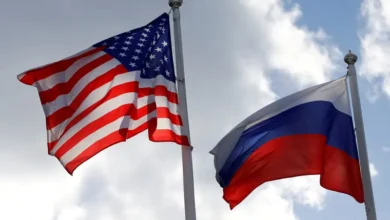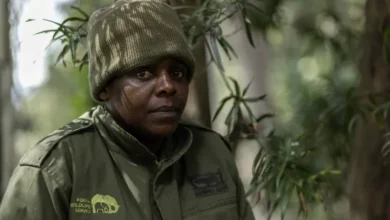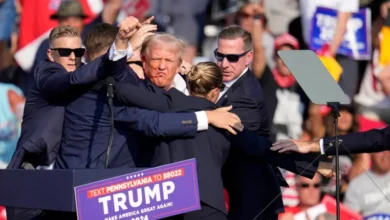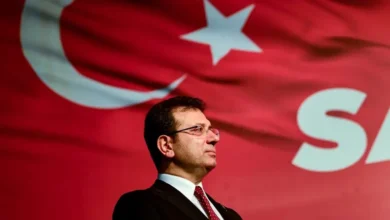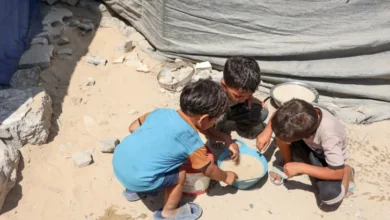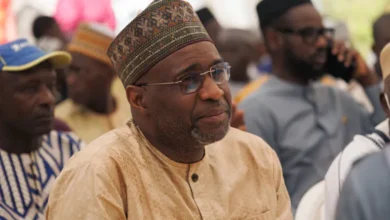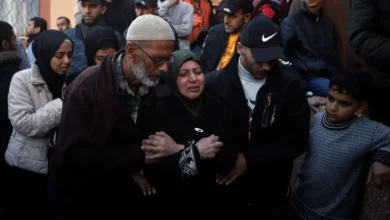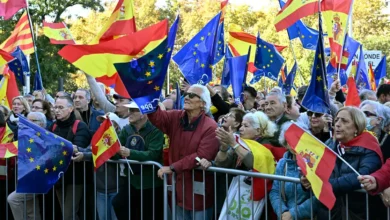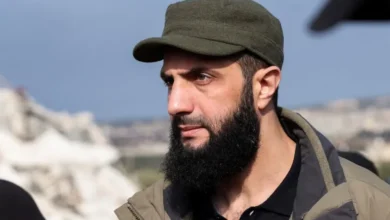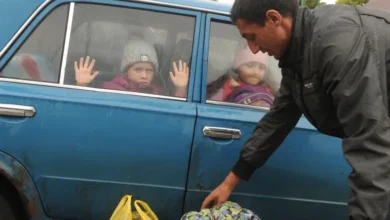At least 72 killed in Israeli strike on north Gaza, Beirut hit again
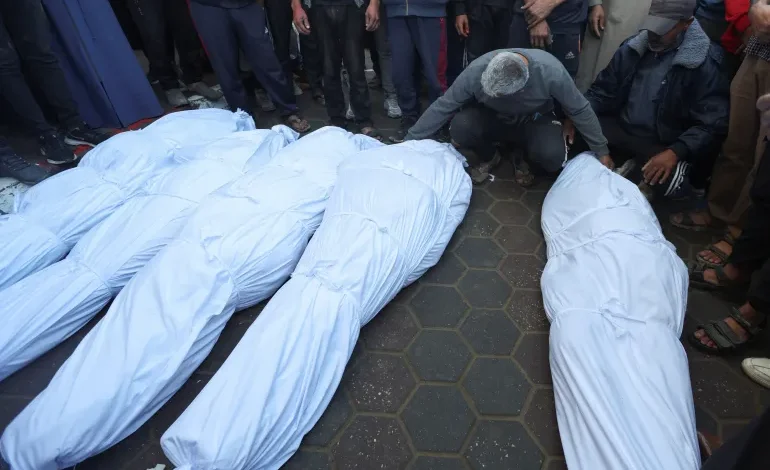
- An Israeli attack on a residential tower in Beit Lahiya, north Gaza, has killed at least 72 people, Gaza’s Government Media Office says. The civil defence says its teams are unable to reach the area, and that dozens more are wounded and trapped under the rubble.
- Israeli forces continue to pound Beirut’s Dahiyeh as Lebanese authorities report 145 Israeli attacks across the country over the past day.
Hezbollah says north of Haifa hit with barrage of rockets
Hezbollah says “its fighters bombarded the Krayot area north of the occupied city of Haifa with a barrage of rockets”.
Meanwhile, the Israeli forces said in a statement on Telegram that around 20 projectiles were identified crossing from Lebanon into Israeli territory, following sirens that sounded around 10am in the Haifa Bay and western Galilee areas.
“Some of the projectiles were intercepted and the rest fell in open areas,” it said.
Protesters block Netanyahu’s office in Jerusalem
Protesters have blocked the entrance to PM Netanyahu’s office building in Jerusalem, according to Israeli media.
They are demanding his resignation, new elections and a deal to swap Israeli captives held in Gaza with Palestinian prisoners.
The footage shared on social media shows dozens of protesters sitting on the ground, obstructing the building’s entrance.
Preliminary death toll from Israel’s Beit Lahiya strike at 72
Gaza’s Government Media Office says the strike, which we reported earlier, hit a residential tower in the north of Gaza housing six Palestinian families. Dozens more are wounded.
We will continue to update you as information comes in.
Faye secured victory in March pledging economic transformation, social justice and a fight against corruption – raising hopes among a largely youthful population facing high inflation and widespread unemployment. He dissolved the National Assembly in September.
Faye appointed his firebrand mentor Ousmane Sonko as prime minister after Sonko was barred from running for president due to defamation charges against him.
The pair promised a left-wing pan-African agenda – promising to diversify political and economic partnerships, review hydrocarbon and fishing contracts and re-establish Senegal’s sovereignty, which they alleged had been “sold abroad”.
An opposition-led parliament hampered the government’s first months in power, leading Faye to dissolve the parliament in September and call snap elections as soon as the constitution allowed him to do so.
Analysts say Senegalese voters have historically confirmed their presidential choice during parliamentary elections, and the governing Pastef party is the favourite to win.
Earlier this year, the West African country witnessed the worst violence in decades in the run-up to the presidential vote. The then-President Macky Sall delayed the vote originally scheduled in February, plunging the country into chaos. The move led to deadly protests, as well as a pushback from the country’s highest court.
Elections finally took place on March 24, giving a smashing victory to Faye – a relatively unknown candidate appointed by widely popular Sonko. But seven months since the vote, pledges have failed to materialise, with Sonko blaming the opposition-led parliament for failing to pass legislation needed to execute the promised reforms.
